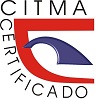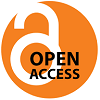The subjects of electrical circuits in the context of current Cuban engineering education
The subjects of electrical circuits in the context of current Cuban engineering education
Keywords:
Electrical circuits, methodological actions, professional technical teaching, higher education, teaching-learning processAbstract
The fundamental objective of this article is to analyze the fundamental and most updated postulates in the Cuban context related to the teaching-learning process of Circuits subjects and its relationship with the theoretical foundations of the Teaching of Professional Technical Education, from the current curricular improvement and the conceptual bases for the design of the “E” study plans guided by the Ministry of Higher Education. From the analysis carried out, common features are observed between the research carried out by the different authors who were consulted, such as: University-Business integration, to enhance the theoretical with the practical, the use of Information and Communications Technologies to solve communication problems. the profession according to the current model of the professional, these foundations will serve as theoretical support in the teaching-learning process of the subjects of Electrical Circuits, deploying a group of actions, which emanate from the methodological strategy to follow. The study was based on a descriptive methodology in which analytical-synthetic and inductive-deductive methods were used and the survey was used as empirical methods. For the processing and analysis of the information collected, the calculation of absolute and relative frequencies was used as a statistical method. The research was carried out in the Electrical Engineering major with a sample of 42 second-year students, obtaining as the main result in the 2019-2020 academic year greater understanding and motivation on the part of the students in the Electrical Circuits subjects.
Downloads
References
Abreu, R. L. R., & Soler, C. L. J. (2015). Didáctica de la Educación Técnica y Profesional. Pueblo y Educación. ISBN 978-959-18-1203-2.
Addine, F. F. (2004). Didáctica teoría y práctica. Editorial Pueblo y Educación. Cuba. ISBN: 978-959-13-1524-3.
Alonso, B. L. A., Cruz, C. M. A., & Olaya, R. J. J. (2020). Dimensiones del proceso de enseñanza – aprendizaje para la formación profesional. Luz, 19(2), 17-29. ISSN 1814-151X. https://www.redalyc.org/journal/5891/589164533003/589164533003.pdf
Capote, L. G. E., Rizo, R. N., & Bravo, L. G. (2016). La formación de ingenieros en la actualidad. Una explicación necesaria. Revista Científica de la Universidad de Cienfuegos, 8(1), 21-28. ISSN: 2218-3620. http://scielo.sld.cu/pdf/rus/v8n1/rus03116.pdf
Capote, L. G., Rizo, R. N., & Bravo, L. G. (2019). La calidad del aprendizaje en las carreras de ingeniería en Cuba. Un estudio de caso. Atenas , 4(48), 79-95. ISSN: 1682-2749. http://atenas.umcc.cu/index.php/atenas/article/view/316/512.
Castañeda, H. Á. E. (2013). Pedagogía, Tecnologías digitales y Gestión de la Información y el conocimiento en la enseñanza de la ingeniería. Primera Edición. Editorial Félix Varela. La Habana. ISBN 978-959-07-1675-1.
Céspedes, B. T., & Juan, C. T. D. (2020). Profesionalización de la disciplina Preparación para la Defensa en las carreras de Ingeniería y Arquitectura. Mendive, 19(1), 168-182.ISSN: 1815-7696. http://mendive.upr.edu.cu/index.php/MendiveUPR/article/view/2110
Dutrénit, G., & Núñez, J. J. (2017). Vinculación universidad-sector productivo para fortalecer los sistemas nacionales de innovación: experiencias de Cuba, México y Costa Rica. Editorial UH, Cuba. ISBN: 978-959-7251-02-6. https://www.researchgate.net/publication/346112243_Vinculacion_universidad-sector_productivo_para_fortalecer_los_sistemas_nacionales_de_innovacion_experiencias_de_Cuba_Mexico_y_Costa_Rica?enrichId=rgreq-2a015b0795ba741504fb3fd7ecc63215-XXX&enrichSource=Y2
Filgueiras, S. de R. M. L., Vilaragut, L. M., Castro, F. M., & Díaz, S. R. (2017). Análisis de los mecanismos de interacción Universidad–Empresa en el sector eléctrico cubano. Revista de Ingeniería Energética, XXXVIII(3), 166-174. ISSN: 1815-5901. https://www.redalyc.org/articulo.oa?id=329152934002
Gómez, V. E. (2017). Estrategias de aprendizaje para un curso de circuitos eléctricos del área de ingeniería. Encuentro Internacional de Educación en Ingeniería ACOFI 2017. https://acofipapers.org/index.php/eiei/article/download/496/496
Gorgone, H. R., Galli, D., Acedo, F., Guillen, G., Diab, J., & Voda, D. (2010). Nuevo enfoque en la enseñanza de la ingeniería. Futuro y relación con el desarrollo sustentable. X Coloquio Internacional sobre gestión universitaria en América del Sur. Escuela de Tecnología. Universidad Nacional del Noroeste de la Provincia de Buenos Aires, Argentina. https://repositorio.ufsc.br/bitstream/handle/123456789/96709/GORGONE.pdf?sequence=1
Kapranos, P. (2013). Teaching and Learning in Engineering Education - Are we moving with the times? Procedia - Social and Behavioral Sciences, 102, 3-10. ISSN: 1877-0428. https://doi.org/10.1016/j.sbspro.2013.10.707
López, C. S. Z. (2015). Modelo pedagógico para la superación profesional técnica de los profesores de la rama eléctrica en el contexto de la entidad laboral. Tesis en opción al grado científico de Doctor en Ciencias Pedagógicas. Universidad de Artemisa, Cuba.
López, C. S. Z., & Pérez, M. M. (2020). mpleo del simulador Edison como herramienta didáctica para el aprendizaje de los circuitos eléctricos. Tecnología Educativa, 5(1), 58-66. ISSN: 2519-9436. https://tecedu.uho.edu.cu/index.php/tecedu/article/view/205.
Mena, L. J. A., Aguilar, B. Y., & Mena, L. J. L. (2019). La práctica laboral en la Educación Técnica y Profesional. Su historia. Mendive, 17(2), 167-182. ISSN. 1815-7696. http://scielo.sld.cu/pdf/men/v17n2/1815-7696-men-17-02-167.pdf
Mendizabal, M. A. (2005). Importancia de una buena formación pedagógica y científica, del ingeniero como docente universitario. Facultad de Ingenieria, Universidad Nacional Autónoma de México. http://dcb.fi-c.unam.mx/Eventos/Foro4/Memorias/Ponencia_06.pdf
Ministerio de Educación Superior. (2017). Ministerio de Educación Superior, Cuba: Planes de Estudio. https://www.mes.gob.cu/planes-de-estudio
Moreno, C. I. (2005). Diseño y evaluación de un modelo de enseñanza-aprendizaje de calidad para la asignatura «circuitos eléctricos I» de la Facultad de Ingeniería eléctrica de la Universidad Central «Marta Abreu» de las Villas. Tesis Doctoral. Universidad Central de las Villa «Marta Abreu».
Ortiz, O. A. L. (2008). Pedagogía de la educación superior y docencia universitaria hacia una didáctica de las áreas profesionales. EDUCOSTA Editorial Universitaria de la Costa Corporación Universitaria de la Costa, CUC. ISBN 978-958-8511-02-3. https://repositorio.cuc.edu.co/bitstream/handle/11323/1928/LIBRO%20Pedagog%C3%ADa%20de%20la%20educ%20superior.pdf?sequence=1&isAllowed=y
Páez, S. V. (2017). La Didáctica de la Educación Superior y la formación profesional ante los retos del siglo XXI. Editora Educacion Cubana, ISBN: 978-959-18-1218-6. https://www.researchgate.net/publication/355108200_La_Didactica_de_la_Educacion_Superior_ante_los_retos_del_siglo_XXI#fullTextFileContent
Pérez, M. M., Ramos, G. J., Guilarte, F. Y., & Santos, B. J. (2023). La formación práctica del estudiante de ingeniería eléctrica en el laboratorio de circuitos eléctricos. Referencia Pedagógica, 11(1), 43-58. http://scielo.sld.cu/pdf/rp/v11n1/2308-3042-rp-11-01-43.pdf
Pérez, M. M., Ramos, G. J., & Santos, B. J. (2022). Integración de las tecnologías en las asignaturas de Circuitos Eléctricos. Pedagogía Profesional, 20(1), 1-13. http://revistas.ucpejv.edu.cu/index.php/rPProf/article/view/1533
Pérez, M. M., Ramos, G. J., Santos, B. J., Santos, F. A., Silvério, F. R. C., & Ayllón, F. E. de la C. (2022). Propuestas metodológicas para el plan de estudios E de las asignaturas de circuitos eléctricos. Revista Ingeniería Energética, 43(3), 1-10. ISSN 1815-5901. https://rie.cujae.edu.cu/index.php/RIE/article/view/695/847
Smith, R. A. (2007). La formación científica del ingeniero para el año 2020. Asociación colombiana de facultades de ingeniería (ACOFI). p 173 - 193. Opciones Gráficas Editores Ltda. Impreso en Colombia. ISBN: 978-958-680-054-9. https://acofi.cloudbiteca.com/pmb/opac_css/doc_num.php?explnum_id=13
Zilberstein, T. J., Herrero, T. E., Borroto, C. G., Castañeda, E., Cañas, L. T., Collazo, D. R., Fernández, A. M., & Valdés, M. N. (2003). Preparación pedagógica integral para profesores universitarios. Centro de Referencia para la Educación de Avanzada, Instituto Superior Politécnico José Antonio Echeverría, La Habana. ISBN: 978-959-16-4090-1.
Published
How to Cite
Issue
Section
License
Copyright (c) 2023 Maykop Pérez Martínez , Josnier Ramos Guardarrama , Janette Santos Baranda

This work is licensed under a Creative Commons Attribution 4.0 International License.
Horizonte Pedagógico es una revista Open Access, lo que quiere decir que todo su contenido es accesible libremente sin cargo para el lector o su institución. Los usuarios están autorizados a leer, descargar, copiar, distribuir, imprimir, buscar o enlazar a los textos completos de los artículos de esta revista sin permiso previo del editor o del autor, de acuerdo con la definición BOAI de open access. Los autores que publican en esta revista están de acuerdo con los siguientes términos: Los autores conservarán los “Derechos de autor” y garantizan a la revista el derecho de ser la primera publicación del trabajo. La revista se encuentra protegida bajo una licencia internacional de Creative Commons Attribution License Atribución 4.0 Internacional (CC BY NC 4.0), que permite a otros compartir (copiar y redistribuir el material en cualquier medio o formato) y adaptar (remezclar, transformar y construir a partir del material), para cualquier propósito, incluso comercialmente. Bajo las siguientes condiciones: atribución (usted debe dar crédito de manera adecuada, brindar un enlace a la licencia, e indicar si se han realizado cambios y no comercial — Usted no puede hacer uso del material con propósitos comerciales. Puede hacerlo en cualquier forma razonable, pero no de forma tal que sugiera que usted o su uso tienen el apoyo de la revista o el autor de la publicación.






















